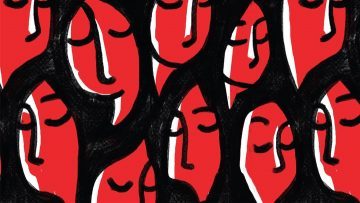James Hamblin in The Atlantic:
 Over the past month, Jennifer Leiferman, a researcher at the Colorado School of Public Health, has documented a tidal wave of depressive symptoms in the U.S. “The rates we’re seeing are just so much higher than normal,” she says. Leiferman’s team recently found that people in Colorado have, during the pandemic, been nine times more likely to report poor mental health than usual. About 23 percent of Coloradans have symptoms of clinical depression. As a rough average, during pre-pandemic life, 5 to 7 percent of people met the criteria for a diagnosis of depression. Now, depending how you define the condition, orders of magnitude more people do. Robert Klitzman, a professor of psychiatry at Columbia University, extrapolates from a recent Lancet study in China to estimate that about 50 percent of the U.S. population is experiencing depressive symptoms. “We are witnessing the mental-health implications of massive disease and death,” he says. This has the effect of altering the social norm by which depression and other conditions are defined. Essentially, this throws off the whole definitional rubric.
Over the past month, Jennifer Leiferman, a researcher at the Colorado School of Public Health, has documented a tidal wave of depressive symptoms in the U.S. “The rates we’re seeing are just so much higher than normal,” she says. Leiferman’s team recently found that people in Colorado have, during the pandemic, been nine times more likely to report poor mental health than usual. About 23 percent of Coloradans have symptoms of clinical depression. As a rough average, during pre-pandemic life, 5 to 7 percent of people met the criteria for a diagnosis of depression. Now, depending how you define the condition, orders of magnitude more people do. Robert Klitzman, a professor of psychiatry at Columbia University, extrapolates from a recent Lancet study in China to estimate that about 50 percent of the U.S. population is experiencing depressive symptoms. “We are witnessing the mental-health implications of massive disease and death,” he says. This has the effect of altering the social norm by which depression and other conditions are defined. Essentially, this throws off the whole definitional rubric.
Feelings of numbness, powerlessness, and hopelessness are now so common as to verge on being considered normal. But what we are seeing is far less likely an actual increase in a disease of the brain than a series of circumstances that is drawing out a similar neurochemical mix. This poses a diagnostic conundrum. Millions of people exhibiting signs of depression now have to discern ennui from temporary grieving from a medical condition. Those at home Googling symptoms need to know when to seek medical care, and when it’s safe to simply try baking more bread. Clinicians, meanwhile, need to decide how best to treat people with new or worsening symptoms: to diagnose millions of people with depression, or to more aggressively treat the social circumstances at the core of so much suffering.
Clearly articulating the meaning of medical depression is an existential challenge for the mental-health profession, and for a country that does not ensure its people health care. If we fail, the second wave of death from this pandemic will not be directly caused by the virus. It will take the people who suffered mentally from its reverberations.
More here.
